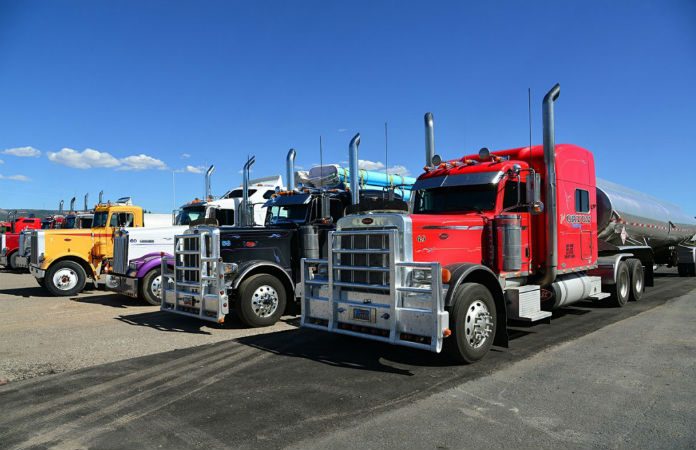Innovations and digitization have completely changed every aspect of our life. This significant move has also modified the transportation industries and thus the future of trucking insurance.
As the logistics industry is growing, most small trucking companies and supply chain companies have already started to leverage the latest technologies. For example, technology like Telemetrics lessens operational expenses while tracking the vehicles and monitoring insights into the driver’s performance.
Following such trends, trucking insurance companies are also leading toward modernization. And one of the most known among them is usage-based insurance (UBI). Through this advancement, one can align the truck driver’s behavior with the price of truck insurance. UBI uses telematics devices to monitor the driver’s action and the overall mileage of the truck. And this generated information is used to decide the insurance premium.
This is helpful and also makes its space in the future of trucking insurance. As per Global Market Data, the UBI market is targeted to expand by 18% more in the coming year of 2024.
Before some time, vehicle logs were used to monitor papers. As a result, many drivers took advantage of that and manipulate the traveling distance and hours.
But with the advancement of technology, chances of breaching the regulations set for miles and time spent on the road have decreased. Also, in 2015, logging devices like this were enforced as mandatory for truckers. Through this, truck carriers can get direct recordings and reports.
This innovation became so successful to give complete information on how, when, and where trucks were used. And when the owner was found driving beyond the log limit, many insurance companies denied the claim after the vehicle was damaged in an accident. With such an example, the adoption of advanced technologies in the trucking industry has impacted trucking insurance.
Here is how modern technology is changing the future of trucking insurance!
Top Technologies that are Changing the Future of Trucking Insurance
Do you know the trucking industry contributes to a big share of the GDP of the United States?
Yes, it’s true! So, trucking companies play an important role and most of the trucking companies are experiencing major changes due to a big shift to the side of technology.
As you have already read in the introduction how technology helped to know the number of miles driven. If we talk about more industry trends, the following technologies have got enough popularity in the trucking insurance industry.
Robo Trucks
Robo or self-driven trucks are one of the latest and biggest advancements in the trucking industry. Yes, you read it right.
In this digital world, self-driven trucks are no more a myth. There is a huge shortage of truck operators in the U.S., so here are robo trucks to easily manage your fleet.
Such an evolution has sorted out the miscommunications between drivers and employers. This technology is useful enough as the human body can’t match the stamina and working capacity of a machine. Hence, these self-driven trucks can boost the productivity of your transportation business to a great extent.
These types of latest vehicles are well-equipped with the latest technical accessories like cameras, 3D mapping, long-distance radars, sensors, etc. Features like these can easily avoid accident chances and make vehicle tracking easier. This advancement may take some time to be fully operational, but the results will be fruitful.
Finding Optimal Routes with Dynamic Routing
Dynamic routing is a mechanism by which one can exchange the routing information between routers to decide the optimal path. Based on data-driven algorithms, you can find the correct route for your fleet of trucks grounded on different elements like time, weight, cost, distance, and customer preferences.
Suppose your driver missed the initially decided route, you can quickly determine the alternate suitable route. In case of heavy traffic on the route, it suggests you go to another efficient route to avoid delays. The interesting part of such technology is the real-time based information that one can get about optimal routing based on factors like weather and traffic. This smart technology can save a lot of your time, and fuel too.
Latest Safety Measures to Lessen the Insurance Cost
Security technology has come across a groundbreaking transformation in some past years. As per one study, commercial trucks portions to 7.9% of the U.S. expressways, but the association with this has 12% of deadly crashes. As per this context, alone trucks are liable for around 4000 deaths each year in the United States.
General safety measures like ABS (anti-locking braking) systems, adaptive cruise control, dim-sightedness warming, etc. have not only lowered the collisions but also saved many transportation companies to spend on potential insurance losses.
If you are a fleet motor company, chances are, one damage to property payouts can go upto $200,000. Whereas an accident with an injury can cost you around $454,000 for a trucking business.
And with such elevated costs of insurance in case of damages, transportation businesses are going for the latest security measures. This helps them to reduce operational cost and give them a good return on investment.
Electronic Payment Methods
Digital cash or e-payments can significantly reduce the burden of handling cash and monitor transactions hassle-free. It simplifies the payment process and reduces the burden. The technologies associated with handling electronic payments enable one to do transactions in one go.
You can easily track taxes and gives monetary assistance wherever and whenever you want. It also lessens the time to collect the payments and you need less manpower too to handle the cash. Electronic payment methods allow you to keep records of transactions that too without any paper burden. It also reduces the overall operating cost of the business as no papers and manpower is needed to maintain that.
Fleet Management Through Software Applications
In the last few years, ELD (Electronic Logging Device) became mandatory for all trucks to maintain a safe environment for drivers. ELD assists the trucking professional in easily maintaining the number of miles and hours spent on the road, unlike paper documentation. Driver’s ROD (Record of Duty) and service hours are easily maintained with this software application for fleet management.
With such software applications, the time and cost associated with fleet management and compliance reporting are reduced. One can easily get real-time notifications or alerts in any situation of theft, violation, or unfortunate accident for instant actions.
As the truck handler can have all the details of the miles driven or any alert which leads to having an impact on the commercial vehicle insurance covers. These reports can be used by truck insurance companies to determine the pricing of the plan.
Insurance Fraud Will No Longer be Tolerated
Insurance fraud is no longer rare. Many cases have been seen where both parties claim insurance for their damaged property without disclosing the true scenarios. This puts the insurance company in a dilemma to evaluate who is liable and who is not. For instance, in the case of the General Liability Insurance scenarios, one party can falsely claim the other party to sue them and to get the amount.
However, by using advanced technology, all of these scenarios can be handled smoothly. Claim providers can use telematics devices and the digital-first notice of loss submission system to determine which vehicle was overspeeding, smashing on the brakes, swerving, or improperly overtaking.
Consequently, with real-time photos and reports, police and insurance companies will have a clear picture of road accidents. And they can easily take a decision.
Automated Freight Matching
One of the major truck industry trends is using an app that helps shippers to connect with transporters who can take extra loads. This advancement not only removes the need for middle freight brokers but minimizes the number of vacant miles driven.
There are several cases where a big number of trucks haul empty as they fail to find freight directly. This automatically leads to the wastage of fuel and extra expenditure. With the help of cloud-based apps, you can easily inform the transporter about cargo-sharing opportunities that are available during the journey or on the whole route.
Be Ahead to Change the Future of Trucking Insurance!
Such technology developments have the potential to alter some of the underpinning inputs to insurance products. The increased application of technologies such as GPS, telematics, AI, data analytics, blockchain, and big data is creating new opportunities for insurers.
With these technological advancements, commercial trucking insurance distribution platforms are expected to increase productivity and provide coverage effortlessly.
Nonetheless, to say, it will be a big sigh of relief for trucking companies too who are already burdened financially by costly commercial truck insurance plans. So, it can be concluded that technology will have a positive impact on the future of trucking insurance.
Hope you found your required answer in this blog!
If you have any questions about the future of trucking insurance, please leave them in the comments section below. We would be delighted to serve you.



























































